The life and work of Brazil's Alexandre Rodrigues, a leading man for these hard times
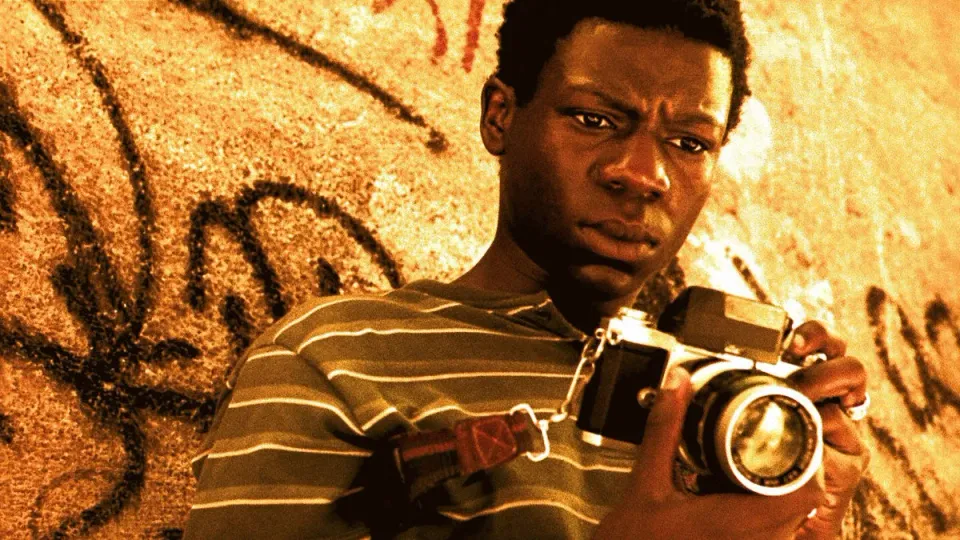
(Welcome to the Wednesday newsletter! Each week, I’m publishing a new pop culture essay from a freelancer. Remember: Your subscription fee helps me pay these freelancers for their efforts! This week: Gabriel Leão profiles City of God leading man Alexandre Rodrigues. Most weeks, these essays are only available to paid subscribers, but I really like this profile and want all of my new subscribers to know there's some great stuff behind the paywall!)
It took a long time “for the penny to drop” for Alexandre Rodrigues, the actor who played Rocket, a young photographer from the favela and the protagonist of Brazilian crime drama City of God (2002).
City of God was Oscar nominated for Best Director, Best Writing (Adapted Screenplay), Best Cinematography, and Best Film Editing. It has been listed as one of the best movies of the 21st century, and it has become both a quintessential part of Brazilian movie history and a staple of world cinema.
When I asked how it felt to be the star of that picture in an email, Rodrigues replied: “It feels so huge that it is hard to answer. Do you feel me?”
“I have an idea of how important the movie is, I know all the accolades it has received. But don’t get me wrong when I say that for me it became as ordinary as many other things in our lives. Still, for me it was a transition in my life and the bright beginning of a career.”
Rodrigues hasn’t changed much physically since City of God was released nearly two decades ago. He is bulkier, but his curious eyes are still there, the very same that peered out at audiences with passion and amazement in his breakthrough role, while his face is a little bit rugged from the experiences he lived.
One scene from the film that springs to mind is when Rocket races to secure the best photo in the middle of an upcoming shootout between drug dealers and cops in the favela. Viewers notice his curiosity, his bravery, and his hunger to capture the moment. But he experiences disappointment and heartbreak across the course of the film, too. It’s a full character arc, resonant, energetic, and poignant.
“I’m not saying that my life started after the movie, but it changed completely,” Rodrigues says. “In those days I didn’t realize that I would miss what was going on in my life. Every second was so intense and like many teenagers I didn’t know what the future had for me. Still every time I see a photo or even the movie itself, I feel an intense nostalgia. I miss the times of being a kid who didn’t know what life was.”
Bringing the drama of so many to life
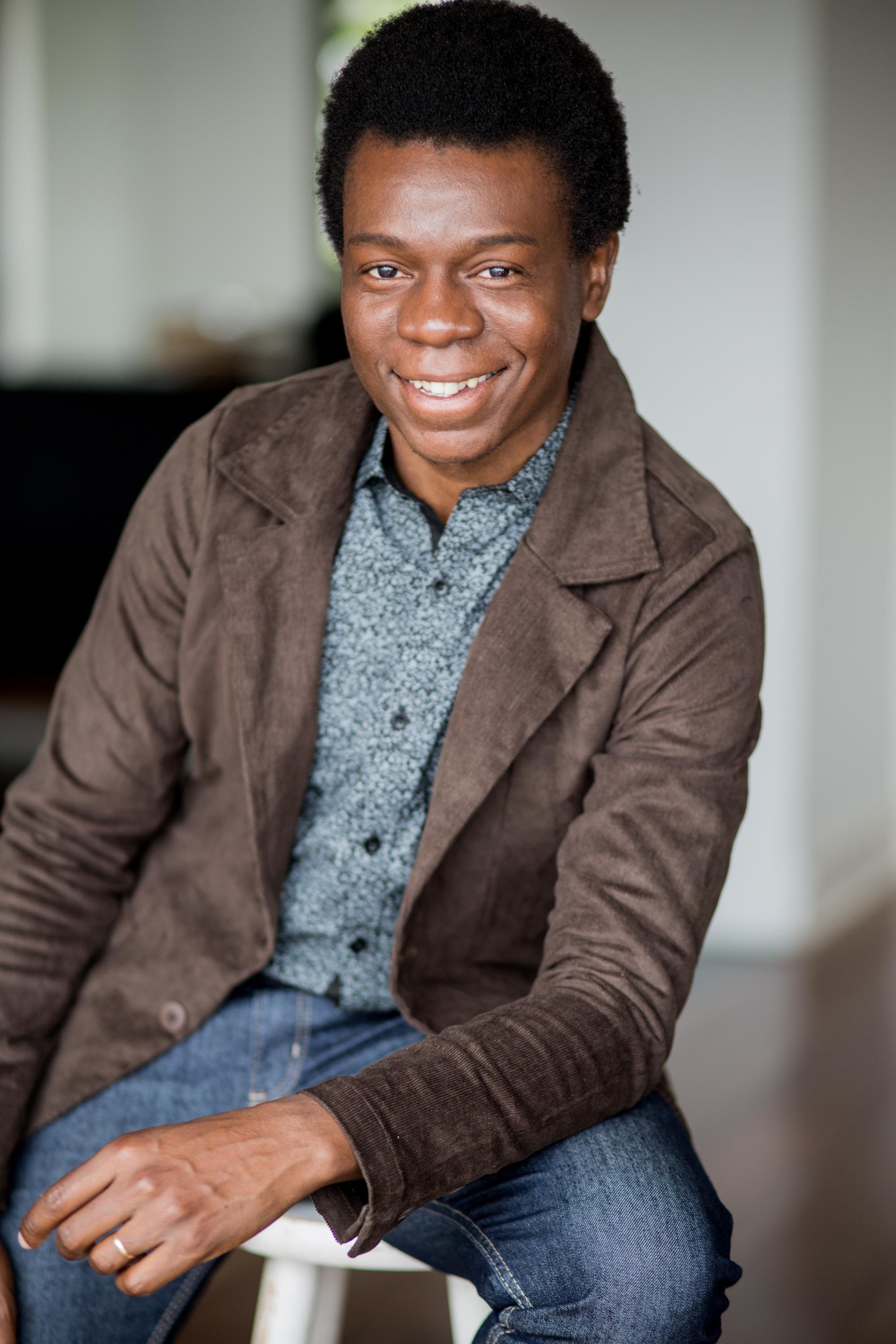
Rodrigues grew up in Rio de Janeiro. He got his audition for City of God thanks to technical theater classes he attended at Community Center to Protect Citizenship in the Cantagalo Community. After he completed work on the film, he tried to enroll in Rio’s prestigious Casa de Artes de Laranjeira, but he was unable to pay. He received a scholarship to the Studio Escola de Atores, whose owner Sonaira D’Ávila “opened the door for me to further develop my skills in this profession,” Rodrigues says.
This training prepared the actor for his next major gig: playing a character in Cabocla, a 2004 telenovela on the Globo Network. Later, he was training to play Shakespeare’s Othello under Sérgio Britto, the renowned Brazilian actor, director, and theater producer. But Britto died in 2011, at 88, and Rodrigues found himself having to find other opportunities. Losing his mentor was a gut punch.
In recent years, he has left the tropical setting of Rio to work in the greyer, rainier São Paulo, where he lives in the countryside with his wife and their infant son. His many varied experiences have shown him the differences between acting for film, TV, and theater. “In cinema, everything is as minimal as it can be,” he says. “TV is similar.”
The stage, however, is a different beast, with proportions that can seem larger than life.
“The hardest part is theater because it is live, and every day is different,” Rodrigues says. “The mood of the audience changes and we are there exchanging energy. So we are in constant change, and our days are never the same because we are always mutating. Theater is pretty much alive, just like ourselves.”
Rodrigues continues to work on the stage. In Italian playwright Marco Martinelli’s play Noise in the Waters, staged in 2019, the actor plays an African refugee trying to make his way to the shores of Europe.
Rodrigues saw the play as a testament to the current state of our world, where many are fleeing countries for others with conditions that are, in some cases, only slightly better, fleeing, “with just their piled-up dreams and a will to leave a situation we can’t picture while they are leaving their homeland.” For these refugees, facing death in the unknown is still better than staying in their homelands.
Many of those searching for a better life are Black people from African countries. In Brazil, 54 percent of the populace is of African descent. In addition, Brazil is one of the most socially unequal countries. For example, the Insper Institutione calculated that the salary of a white man surpasses what a Black woman is paid by 159 percent.
I am a Black Brazilian, and though I understand prejudice, I only experience part of it, as I hail from a well-off family and studied in private schools. I’m privileged. So I asked Rodrigues how it is to be an actor of African descent living and working in Brazil. Rodrigues, who is known for his positive take on life and faith in God, offered an answer that acknowledged the negatives of prejudice while trying to find the positives in his own life.
“I’m a Black person, and I’m not a hypocrite. I know the hardships that happen to us. I know there is prejudice in the structure of humanity, but I can only talk for myself as an individual. My life isn’t based on racial prejudice but on God. I know that love breaks any barrier,” Rodrigues says. “I see Black folks being killed by law enforcement, and I get baffled! But I choose to love and forgive because I know we are all children of the same father. I opt to love instead of hate, to look for everyone the same way and to not segregate.”
How Alexandre Rodrigues keeps going, even when things get tough
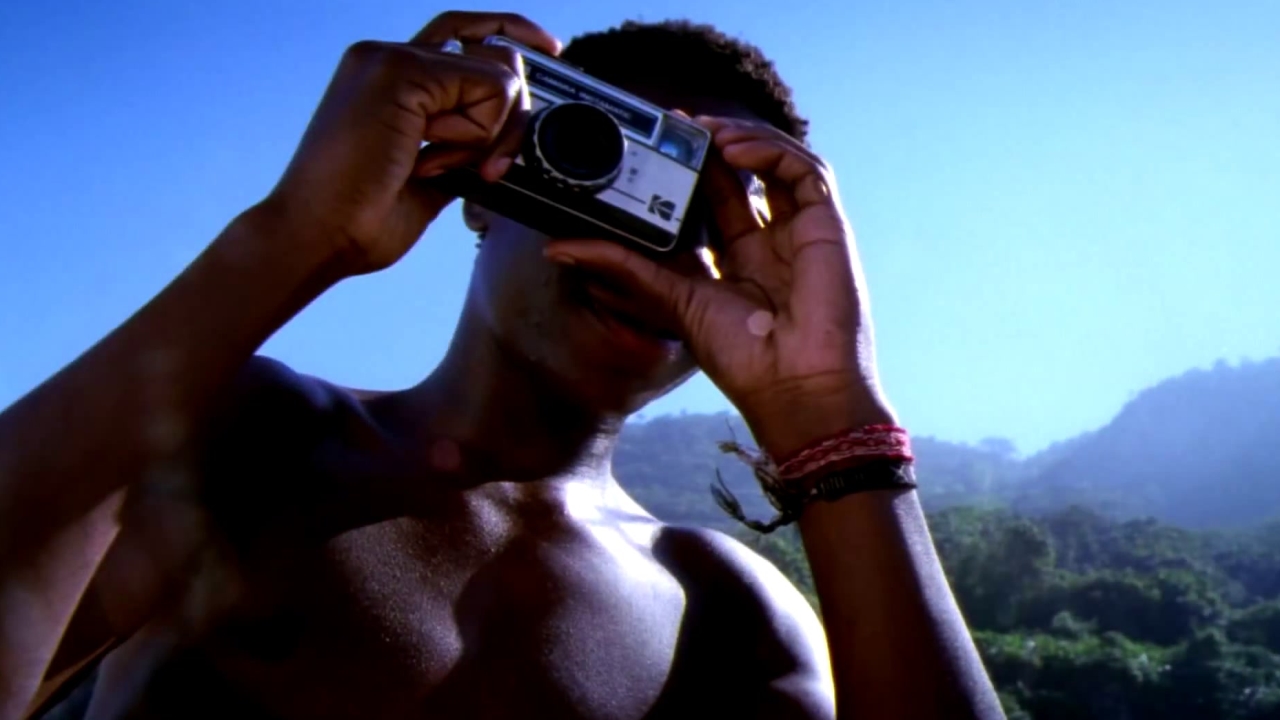
In 2018, Brazilian media discovered that Rodrigues was working as an Uber driver. It made a fuss similar to the one made by American media when journalists learned Cosby Show alum Geoffrey Owens was working as a cashier at Trader Joe’s. As a result, both Rodrigues and Owens were targeted by toxic social media users. The twin stories were a good reminder that not every actor is swimming in rivers of money. But although Rodrigues and Owens share similarities, the American reality is very different from the South-American reality.
Rodrigues’s acting career does continue to progress. He’s starring in the comedy film Abestalhados 2, releasing in 2022, and is also currently shooting a series for Globo Play, the streaming service of the enormous Latin American media conglomerate Globo.
Before the Covid-19 pandemic hit, Brazil’s cultural industries were already languishing amid long years of economic and political crisis. But the pandemic cut the country even deeper than almost any other nation. According to a study from John Hopkins University, Brazil saw the world’s second-most Covid-related deaths (behind the US) and the third-most infections (behind the US and India). Many blame Brazil’s president, Jair Bolsonaro, a tropical answer to Donald Trump.
Besides being a science denier, Bolsonaro is seen as disdainful of culture by activists, artists, and scholars who point to his dictatorial tendencies and their frequent clashing with the arts. Rodrigues and his wife are among those affected by his policies.
“It was never an easy task, but due to the pandemic and the current president who isn’t in favor of artists, it became worse,” Rodrigues says. “We keep on fighting, we need to rebuild ourselves, keep up with new tech and resist.”
But Rodrigues’s recent hardship go beyond a chosen career with its “highs and lows.” In April, the actor revealed on his Instagram that his mother, Rosangela Piedade da Silva, who is 61, was diagnosed with lung cancer. Rodrigues’s sister started a crowdfunding campaign that he promoted via his Instagram.
Despite his many acting achievements, Rodrigues still wasn’t able to provide a private health care plan to his mother. Brazilian actors are mostly paid per work, which is similar to the US. A years-long contract is only for the names at the very top of the telenovela echelons. But unlike in the US, Brazilian actors are not paid when old movies and TV shows are shown on television, a cause that legendary actress Sonia Braga has been vocal about. If Rodrigues received payment when his old performances are shown again, it would have substantially helped his plight.
The family has been able to secure some treatment through Brazil’s public health system. But the money gathered in the crowdfunding campaign, R$72,000 (around $13,700 in US dollars) will be exhausted in the many treatments Rodrigues’s mother has to undergo.
Nevertheless, Rodrigues remains unflappable. He continues studying English. In 2007, he was in the John Legend video “P.D.A., We Just Don’t Care,” which he describes as an “amazing” experience.” He continues to look for meatier opportunities: “I still wait for the time when I’ll be with my favorite actors”.
Rodrigues’s City of God co-stars Seu Jorge and Alice Braga carved out international careers for themselves, which traditionally hasn’t been easy for Brazilians, who lack the geographical proximity and cultural cross-pollination with the United States that Mexico and Puerto Rico have, for instance.
But Rodrigues also didn’t see his dreams crash. As documented in the film City of God: 10 Years Later, many of that film’s stars went back to their old lives, and several fell into the traps of drug addiction and real-life crime. Though Rodrigues didn’t soar as high as some co-stars, he also remains a working actor, even if he had to occasionally drive an Uber to make ends meet.
He’s known for his telenovelas, movies, and plays in Brazil, and now all he needs is the right opportunity. He could join other Brazilian stars like Sonia Braga, Alice Braga, Seu Jorge, Rodrigo Santoro and Wagner Moura in crossing over into the American film and television industry. And with his life experiences and incredible skills, Rodrigues could become the perfect leading man for the hard times in which we are living.
Correction: Due to an editorial error, the events of City of God were misrepresented. The article has been corrected.
Episodes is published three times per week and edited by Emily VanDerWerff. Mondays feature her thoughts on assorted topics. Wednesdays offer pop culture thoughts from freelance writers. Fridays are TV recaps written by Emily. The Wednesday and Friday editions are only available to subscribers. Suggest topics for future installments via email or on Twitter. Read more of Emily's work at Vox.


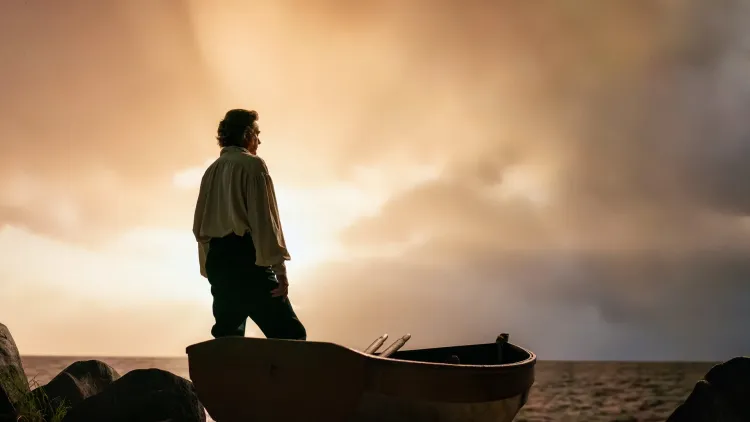
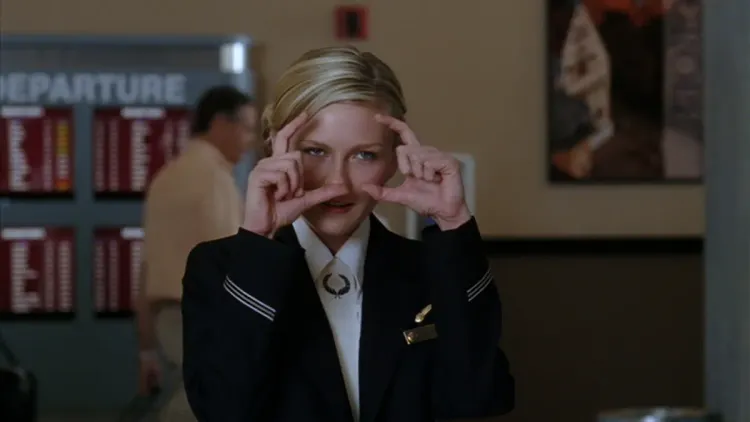
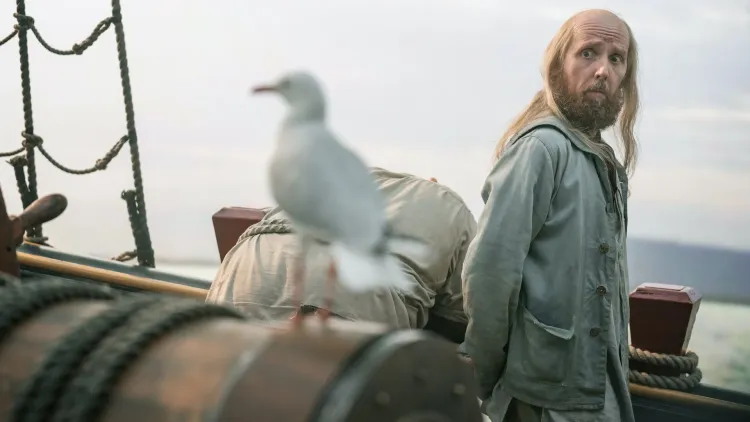

Member discussion